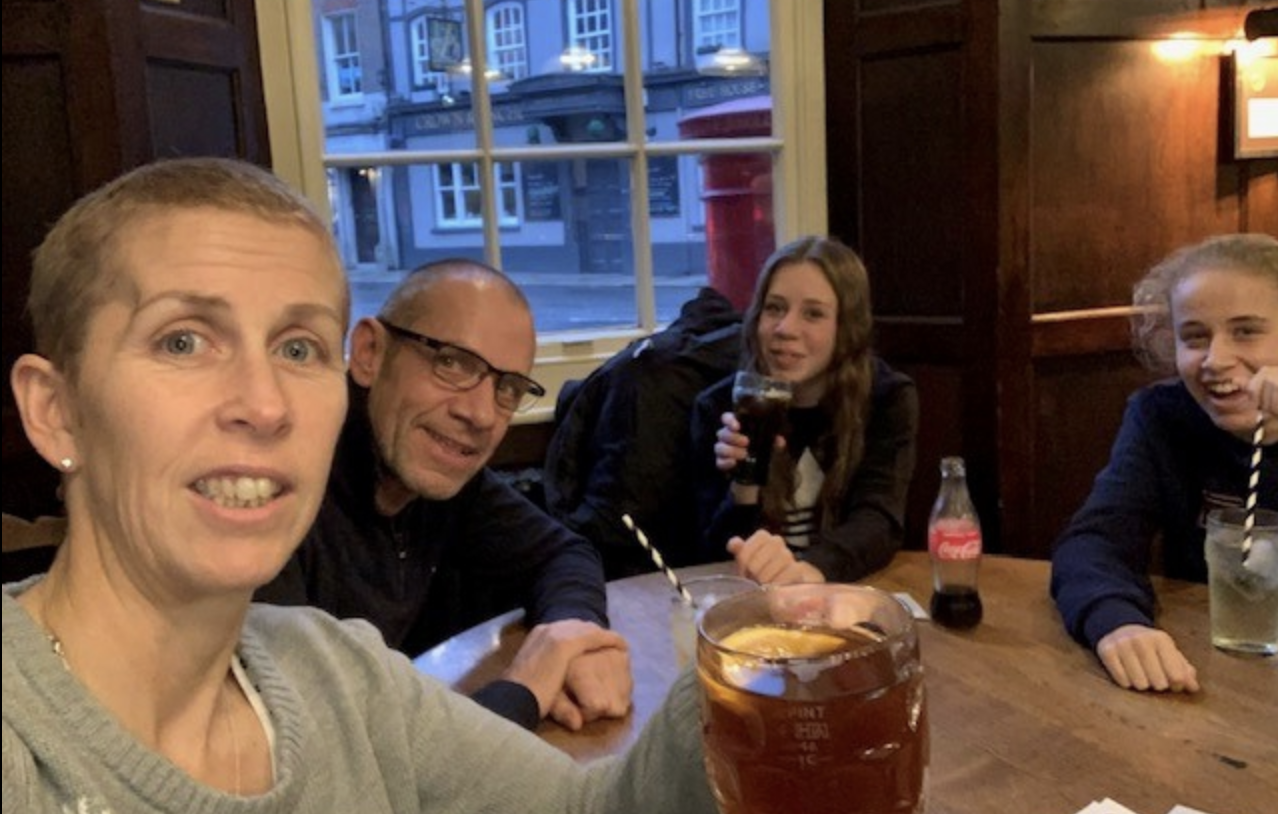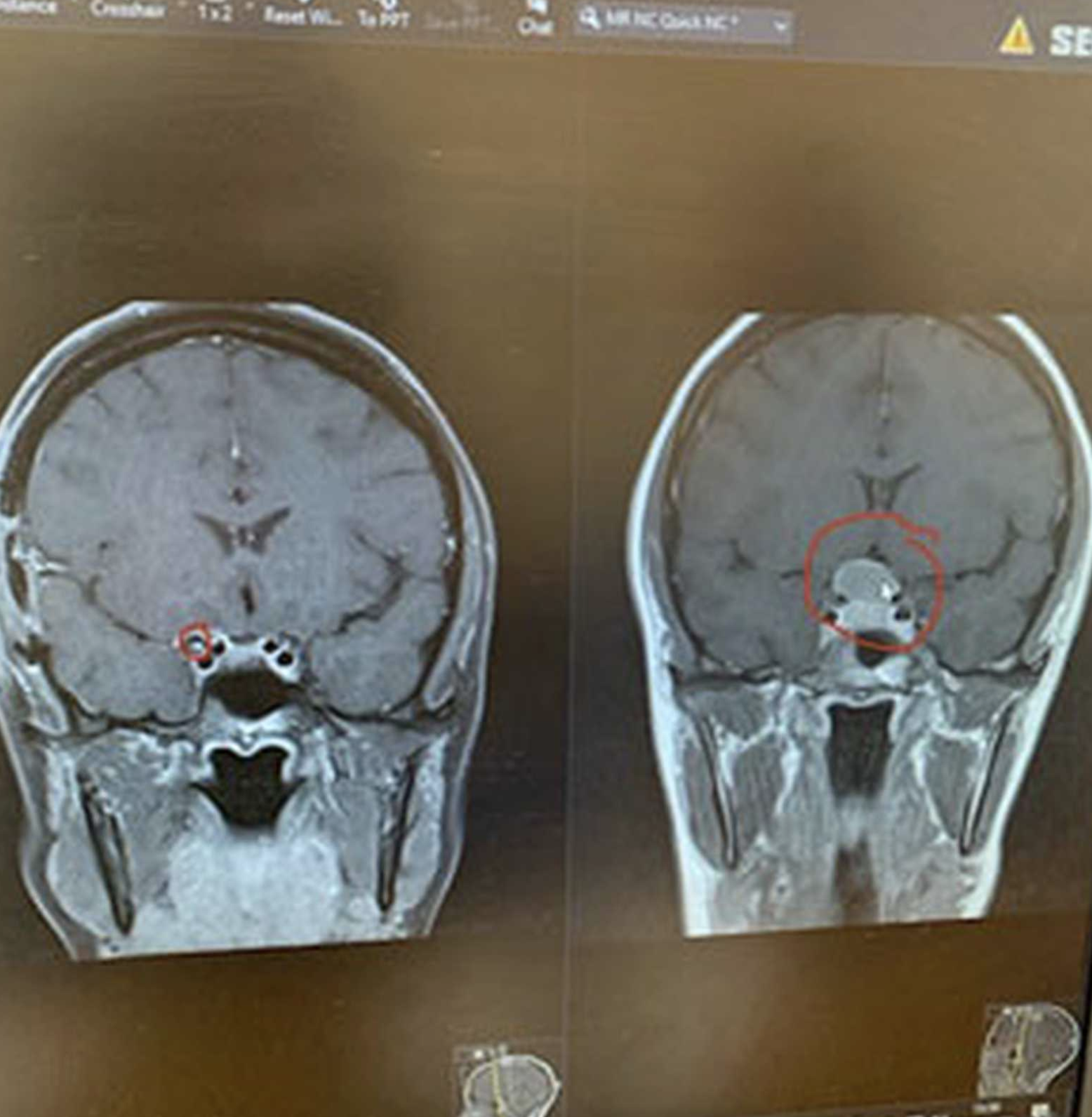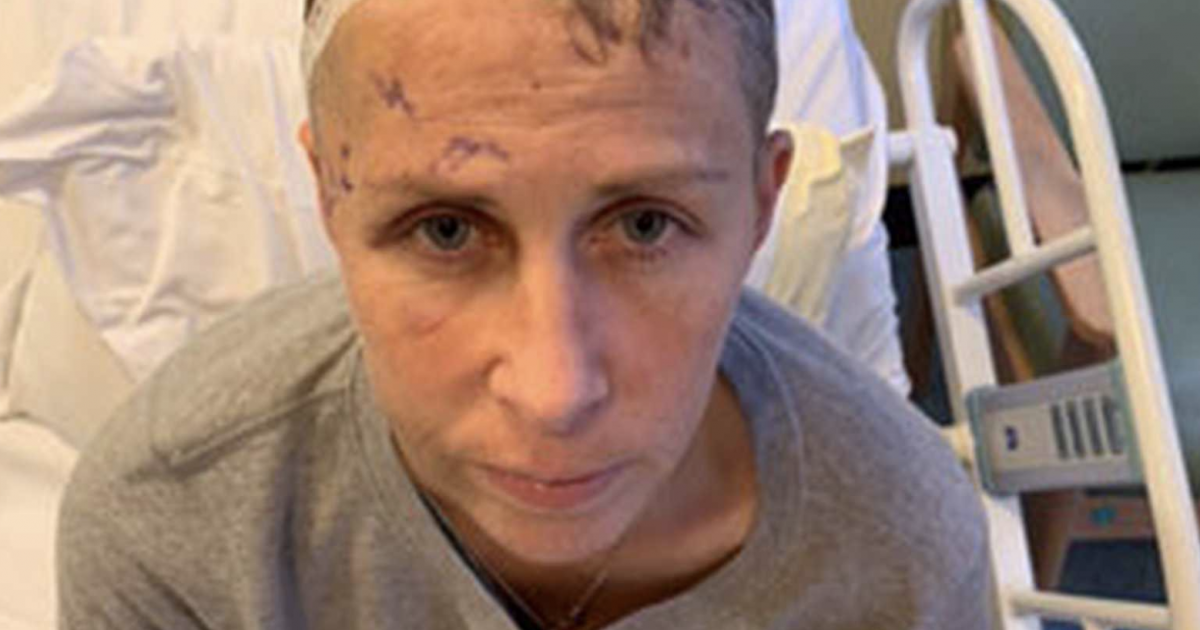The Importance of Advocating for Yourself
- Many people need a reminder to be proactive about making doctors appointments and pushing for answers when physicians do not fully explain symptoms.
- Tammy Andrews, 47, visited her doctor complaining of aches, pains, blurry vision, and mental haziness. She was told that the symptoms could be explained by menopause and a vitamin D deficiency.
- After requesting an MRI and being told that it would be weeks before she could get one, she decided to pay for her own privately. When she got the results back, she learned she had a brain tumor.
- Andrews’s story highlights how important it is to trust your gut and take symptoms seriously. People and families living with cancer should know that doctors do not always agree, and it is smart to seek out second and third opinions.
Andrews had taken some remarkable steps forward in the years before the pandemic. In 2019, she completed three years of college and obtained her nursing degree.
Read More
Andrews went to the optometrist, who prescribed her glasses after running a series of eye exams. But that proved to be little more than a temporary fix. "Wearing my glasses, I would put one hand over my eye and couldn't see anything out of my right eye, and I could hardly see any colors," Andrews explained in her interview.
Andrews refused to give up hope, and in September, she finally got the referral she needed to book an MRI. But when she called, she learned it would likely take weeks to scheduleher MRI had not been deemed urgent.
At this point, it had been seven months with no progress, so Andrews decided to take matters into her own hands.
"At the time, I was training to be a nurse so I knew exactly how important it was to listen to the patient," she explained while sharing her story with the Brain Tumor Charity. "But I felt that no one was listening to me. I was getting very worried, because I knew that something was wrong and I really needed to find out what."

She booked a private MRI and returned six days later to learn that she had a brain tumor.
Andrews said that her emotions were mixed when she finally got her results. Her first reaction was, "I'm going to die." Then she thought, "I can't die, I'm a mum." It was a shocking revelation, but Andrews took some comfort in having identified the issue. "A part of me felt relief that at least I knew what was wrong with me. Someone was listening, and I didn't have to fight for answers anymore," she said.
Andrews returned to work as usual, but got a call three days later informing her that a bed was available at the hospital. She needed to surgery or she might go blind. The following day she underwent a seven-hour craniotomy that saved her sight and her life.
She is doing better these days. While almost all of the tumor is gone, she will likely need radiation down the line to help keep it at bay. Andrews admits that her cancer journey continues to come with challenges, but she stays strong for her daughters and credits her husband with being her rock.
Doctors can provide basic health guidelines, but if you are experiencing physical symptoms — only you can speak up and inquire about what you need.
Advocate for Yourself
Whether you are currently fighting cancer or fearing that you might have it, it's essential to be your own advocate.
When working with your medical team, tell them precisely what you feel and raise anything that may feel off to you. Every symptom should have a plan to address it, and if you feel like you are not being heard, continue to push and seek a second opinion if your concerns are not being addressed.
The only way to know this is to continue to push for answers, telling your medical team exactly what you are experiencing and demanding that you receive the best treatment for your specific situation.
"Every appointment you leave as a patient, there should be a plan for what the doc is going to do for you, and if that doesn't work, what the next plan is," Dr. Zuri Murell, director of the Cedars-Sinai Colorectal Cancer Center, told SurvivorNet in a previous interview. "And I think that that's totally fair. And me as a health professional that's what I do for all of my patients."
One of the greatest cancer researchers of our time says get a second opinion when you are diagnosed with cancer, learn about clinical trials, and options.
Get a Second Opinion
If you're experiencing symptoms that might be caused by cancer, it's critical to know for sure whether or not you have the disease. To do that, you should always get multiple opinions on your diagnosis.
Doctors are not always in agreement about whether your symptoms might merit further testing and whether specific treatment methods might work best for you. Sometimes, what your first doctor says might fall short of fact, and a second or third medical professional might be able to catch cancer before it grows and spreads.
Dr. Steven Rosenberg, chief of surgery at the National Cancer Institute and one of America's most renowned cancer doctors, agrees.
"If I had any advice for you following a cancer diagnosis, it would be, first, to seek out multiple opinions as to the best care, because finding a doctor who is up to the latest of information is important," Rosenberg previously told SurvivorNet. "And it's always important to get other opinions so that you can make the best decisions for yourself in consultation with your care providers."
Learn more about SurvivorNet's rigorous medical review process.

